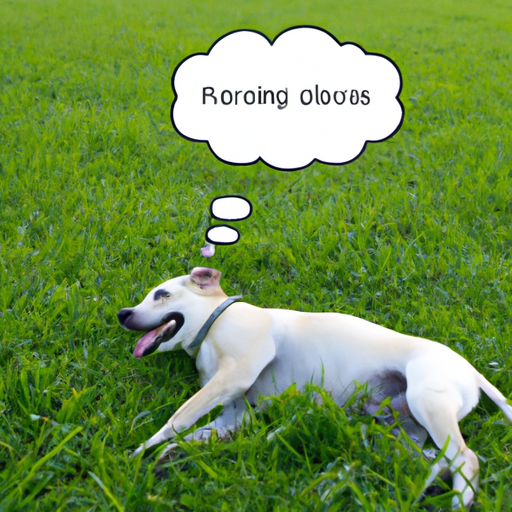As a dog owner, you’ve likely witnessed your furry friend munching on grass during their outdoor adventures. This behavior often leaves owners puzzled and questioning: What exactly does grass do for dogs? Is it safe? Is it beneficial? This article aims to answer these questions in detail and provide understanding about this common canine behavior.
Table of Contents
- Understanding Why Dogs Eat Grass
- Health Benefits of Grass for Dogs
- Potential Risks of Dogs Eating Grass
- When to be Concerned
- How to Prevent Dogs from Eating Grass
- Frequently Asked Questions
Key Takeaways
– Dogs may eat grass due to a variety of reasons, including boredom, nutritional deficiencies, or instinct.
– Grass can provide some health benefits for dogs, such as aiding digestion.
– However, grass can also pose risks, especially if it’s treated with pesticides or fertilizers.
– It’s important to monitor your dog’s grass-eating habits and consult a vet if any concerning symptoms arise.
Understanding Why Dogs Eat Grass
It’s not entirely clear why dogs eat grass, but there are several theories. Some experts believe it’s simply because they enjoy the taste or texture. Others suggest it might be an instinctual behavior inherited from their wild ancestors, who would eat plant matter in their diet. There’s also a theory that dogs might eat grass to induce vomiting if they’re feeling unwell. However, this is a topic of debate among veterinarians. PetMD provides an in-depth exploration of these theories.
Health Benefits of Grass for Dogs
Despite the uncertainty behind the reason, grass does offer some health benefits. Similar to the fiber content in fruits and vegetables we consume, grass can aid in a dog’s digestion by adding bulk to their diet, which can help with constipation. It also contains nutrients like chlorophyll, which is rich in antioxidants and can help improve a dog’s skin and coat health.
Additionally, grass can provide mental stimulation for dogs. Chewing on grass can be a fun activity that helps relieve boredom, especially for dogs that spend a lot of time outdoors.
Potential Risks of Dogs Eating Grass
While there are benefits, there are also potential risks when dogs eat grass. One of the main concerns is the potential for ingesting harmful substances. Grass in public areas or even your own lawn may be treated with pesticides, fertilizers, or other chemicals that can be toxic to dogs. Always be aware of the environment where your dog is playing and eating grass.
Other risks include the potential for grass to cause gastrointestinal upset, or in rare cases, a blockage. Long, tough blades of grass can be difficult for dogs to chew and digest, which can lead to vomiting or diarrhea.
When to be Concerned
Grass eating is typically a normal behavior for dogs. However, if you notice sudden changes in your dog’s grass eating habits, it might be time to consult a vet. If your dog is eating grass frantically, and especially if they’re vomiting frequently after eating grass, it can be a sign of a more serious underlying health issue. It’s always better to be safe and consult with a professional if you’re concerned.
How to Prevent Dogs from Eating Grass
If you’re concerned about your dog’s grass eating, there’s a few steps you can take. First, ensure your dog has a balanced diet. If they’re eating grass due to a nutritional deficiency, providing a complete and balanced diet can help. Second, provide plenty of mental stimulation. Bored dogs may resort to eating grass, but toys and playtime can offer a better outlet for their energy. Finally, supervise your dog when they’re outside. This will allow you to intervene if they start eating grass.
If you’d like to learn more about dog behaviors and what they mean, One Top Dog provides a wealth of information. Here are a few related articles that can provide more insight:
– Understanding Dog Behaviors
– Healthy Diet for Dogs
– Toys and Activities for Dogs
Frequently Asked Questions
1. Is it normal for dogs to eat grass?
Yes, it’s a common behavior among dogs. Unless it’s accompanied by other concerning symptoms, there’s usually no need to worry.
2. Can eating grass hurt my dog?
It can potentially cause harm if the grass has been treated with harmful chemicals, or if it leads to gastrointestinal upset. However, most dogs can eat grass without any issues.
3. Should I stop my dog from eating grass?
If your dog enjoys eating grass and it’s not causing any issues, there’s no need to stop them. However, it’s important to ensure the grass is free from harmful chemicals.
4. What should I do if my dog is eating grass and vomiting?
If your dog is frequently eating grass and vomiting, it’s best to consult a vet. This could be a sign of a more serious health issue.
In conclusion, grass can serve various purposes for dogs, from providing mental stimulation to aiding digestion. However, it’s important to always supervise your dog’s behavior and consult with a vet if any concerns arise. After all, you’re more than just a pet owner; you’re a caregiver, and your dog’s health and happiness depend on you.



